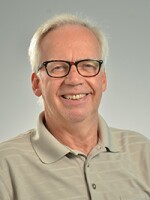As the University of Kansas prepares to open the men’s basketball season against the number one team in the country, KCUR has discovered that for more than two years its athletic department has paid thousands of dollars a month in legal bills, defending the storied program against serious alleged NCAA violations.
The bills from two law firms started coming weeks after a top executive from Adidas was federally indicted in New York in September 2017.
The indictment of James Gatto led to a high profile trial that unmasked the troubling relationship between shoe companies like Adidas and high-profile basketball programs like the one in Lawrence.
KCUR obtained the legal bills through April using the Kansas Open Records Act. Most are from Bond, Schoeneck & King in Overland Park, Kansas. But KU also hired the prestigious Pillsbury law firm with offices in New York and Washington, D.C.
The first legal bill from Bond, Schoeneck & King arrived in December 2017, and they have kept coming, every month, reaching into the five figure range. By April, KU Athletics had paid both firms more than $1.25 million, KCUR discovered.
While KU wasn't charged in the New York criminal case, it was a prominent part of the trial. And, it is important to note that the U.S. Attorney said KU was a victim in this scheme. The NCAA doesn’t see it that way, however, and charged the school with five Level I violations, which are the most serious.
According to the NCAA, KU coach Bill Self and his assistant, Kurtis Townsend, “embraced, welcomed and encouraged” Adidas employees and consultants to influence high-profile basketball recruits to sign with the Jayhawks.
As the NCAA investigation ramped up, the KU legal bills got even bigger. In July 2017, the university hired Pillsbury, the Washington D.C. firm, to work on the infractions investigation. The violations became public in September of that year, and Pillsbury billed KU $177,696 that month alone, including $10,273 for travel.
In total, Pillsbury has billed KU $355,524. Bond, Schoeneck & King in Overland Park has cost KU Athletics $770,155.
None of that is tax money. All of it comes from athletics' department funds.
KU Athletics wouldn't agree to an interview but sent a statement.
"Generally speaking, legal fees are an expected and necessary cost of doing business for a major athletics department," Associate Athletics Director for Public Relations, Dan Beckler, said in the statement.
"As we have said since the beginning, we are fully committed to contesting these allegations and have hired additional outside legal counsel to assist these efforts."
New accountability process
The Independent Accountability Resolution Process (IARP), which is a new enforcement process, has complicated KU's case. IARP is a five-person independent resolution panel that will make the decision about violations. And, once penalties are handed down, they cannot be appealed.
"The genesis of that was from the recommendation from the commission on college basketball," Naima Stevenson Starks who oversees the IARP told KCUR.
The commission she refers to was the one chaired by former Secretary of State Condoleezza Rice and formed after the Adidas trial. "Throughout our work as a commission, we just heard too many times, 'Everyone knew what was going on,'" Rice said in 2019.
"Throughout our work as a commission we just heard too many times, 'Everyone knew what was going on.'"Former Secretary of State Condoleezza Rice
To date, the IARP has yet to rule on any case so it's impossible to speculate just how harsh the penalties, if any, might be.
The case continues to hang over KU as it gets ready to take on Gonzaga Thursday in the opener for both schools.
"We've got so many unknowns going on right now with our program right now that's been well-documented, that it's hard to really sell exactly what a situation would be when we don't know," Head Coach Bill Self recently said.
In Self’s first year as a head coach at Oral Roberts, he had a losing year but later told Sports Illustrated that he "realized in that first year that coaching is overrated. It’s about getting players."
It’s now the manner of how he gets players that’s being called into question. And the IARP will have the final answer.







